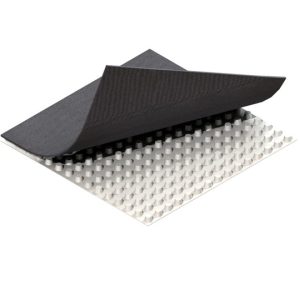Anti-Cancer Peptide Inhibitors: Mechanisms and Therapeutic Applications

。
# Anti-Cancer Peptide Inhibitors: Mechanisms and Therapeutic Applications
Introduction
Cancer remains one of the leading causes of death worldwide, driving the need for innovative therapeutic strategies. Among emerging approaches, anti-cancer peptide inhibitors have gained significant attention due to their unique mechanisms of action and potential for targeted therapy. These bioactive molecules offer promising alternatives to conventional treatments by specifically interfering with cancer cell proliferation, survival, and metastasis.
What Are Anti-Cancer Peptide Inhibitors?
Anti-cancer peptide inhibitors are short chains of amino acids designed to block specific molecular interactions crucial for cancer progression. Unlike traditional chemotherapy drugs, these peptides can be precisely engineered to target particular proteins or pathways involved in tumor growth while minimizing damage to healthy cells.
Key Characteristics:
- Typically 5-50 amino acids in length
- High specificity for target molecules
- Modifiable structure for enhanced stability
- Potential for crossing biological barriers
Mechanisms of Action
Anti-cancer peptide inhibitors employ diverse mechanisms to combat tumor growth and spread:
1. Protein-Protein Interaction Disruption
Many peptides function by interfering with critical protein-protein interactions essential for cancer cell survival. For example, peptides targeting Bcl-2 family proteins can induce apoptosis in resistant cancer cells.
2. Enzyme Inhibition
Some peptides act as competitive inhibitors of key enzymes involved in tumor progression, such as matrix metalloproteinases (MMPs) that facilitate metastasis.
3. Receptor Blockade
Peptides can bind to and block growth factor receptors (e.g., EGFR, HER2) that drive uncontrolled cell proliferation.
4. Immune System Modulation
Certain peptides enhance anti-tumor immune responses by activating cytotoxic T-cells or inhibiting immune checkpoint molecules like PD-1/PD-L1.
Therapeutic Applications
Anti-cancer peptide inhibitors show promise across various cancer types:
| Cancer Type | Peptide Target | Development Stage |
|---|---|---|
| Breast Cancer | HER2/neu | Clinical Trials |
| Prostate Cancer | PSMA | Preclinical |
| Melanoma | BRAF | Clinical Trials |
| Lung Cancer | EGFR | Approved (some variants) |
Advantages Over Conventional Therapies
Peptide inhibitors offer several benefits compared to traditional cancer treatments:
- Higher specificity: Reduced off-target effects and toxicity
- Better tissue penetration: Smaller size allows deeper tumor penetration
- Lower immunogenicity: Less likely to trigger immune reactions than antibodies
- Structural flexibility: Easier to modify for improved pharmacokinetics
Challenges and Future Directions
Despite their potential, several challenges remain in developing peptide inhibitors:
1. Stability Issues
Natural peptides are often susceptible to rapid degradation by proteases. Strategies like cyclization and D-amino acid incorporation are being explored to enhance stability.
2. Delivery Challenges
Effective


